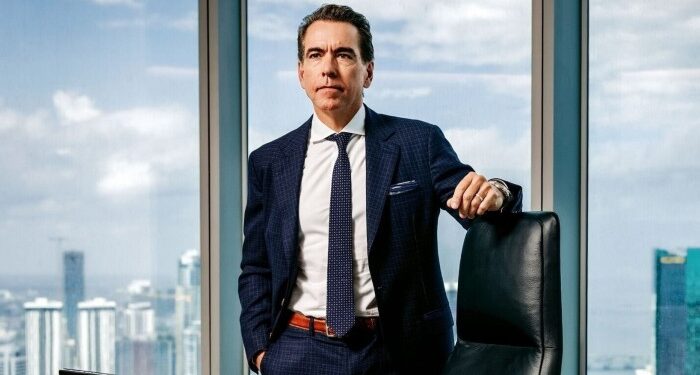Unlock the Editor’s Digest for free
Roula Khalaf, Editor of the FT, selects her favourite stories in this weekly newsletter.
The billionaire co-founder of buyout firm Thoma Bravo has said wealthy individuals should be concerned about companies that private equity firms cannot sell ending up in funds aimed at retail investors.
Orlando Bravo, managing partner of the US software-focused investor, said that the growing pool of private funds aimed at retail investors meant that “retail could end up saving these companies that people cannot sell”.
Demand from retail funds had lit the market for second-hand stakes in buyout funds and private equity portfolio companies “on fire”, Bravo said.
The retail vehicles are starting to fund so-called continuation vehicles, which buyout firms set up specifically to buy companies from themselves either because they cannot sell them or want to remain exposed to the upside.
“That’s beginning to happen,” he said.
The private equity industry has been struggling to sell assets that it bought at high prices during the rock-bottom interest rate years of the pandemic.
Buyout shops have less money to return to their traditional institutional backers as a result and are less able to raise money from those backers for their new funds.
An influx of capital from retail investors into so-called evergreen funds, which have no end date and allow cash to be deposited and withdrawn at regular intervals, has partially helped fill the fundraising gap.
Orlando Bravo said the firm did not want to be “left out” of the “incredible flows” of money arriving into the sector from wealthy individuals, because “ultimately there’s only so much money from the institutional community that you can access”.
Institutions such as pension funds and endowments often have limits on the proportion of their capital they can invest in private markets, and many are maxed out.
However the firm, which manages over $179bn in assets and has returned $20bn in cash to investors in the past 12 months, currently has no offering for wealthy individuals. Some specialist firms have resisted launching such funds while they consider how to structure them to accommodate the types of deals they do.
“The retail investors might not be as sophisticated,” Bravo said. “There might be more risk of them not understanding what they’re involved in and this could create all sorts of problems.”
The Financial Times reported this month that some of the largest evergreen vehicles had recently bought swaths of private equity fund stakes from institutional investors seeking liquidity after a dearth of distributions, and that the extra demand had helped prop up prices for such second-hand assets despite the sector downturn.
Evergreen vehicles paid on average 4 per cent more last year for fund stakes than traditional buyers, according to data from advisory firm Campbell Lutyens, while investment bank Evercore said the influx of retail capital had “bolstered pricing”.






